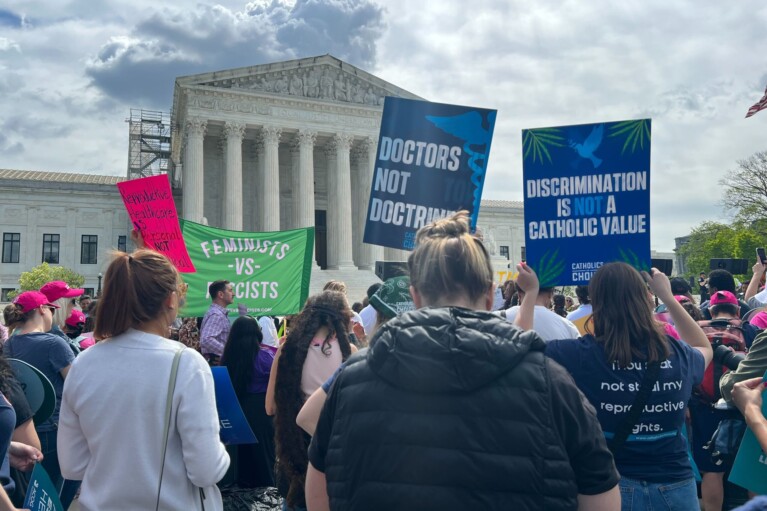
As we seek strength to navigate this heartbreaking time, we are confronted by the amplification of an existing inequity.
Many marginalized communities who were already struggling now face harder times ― including undocumented immigrants.
Health organizations have made it clear that every person must take part in containing the virus. That means getting tested and treated, if necessary.
Undocumented immigrants already face the burden of little or no access to health insurance. Now there’s another cause to fear deportation.
If undocumented immigrants become sick, and many are at higher risk because they are performing essential services, they should seek care immediately. But for many, it’s not that simple. Each person is forced to make a decision between their health, or the health of a family member, and the possibility of being picked up by U.S. Immigration and Customs Enforcement (ICE).
It’s not just a fear for undocumented immigrants, but for all immigrants, especially those in mixed-status families.
And if people are afraid to go to the hospital, not only are they at risk, we all are.
ICE has vowed that they will not raid hospitals during this state of emergency and encouraged immigrants with COVID-related medical needs to go to the hospital without fear of deportation. Yet, how can we expect immigrants without papers to believe them? Trust between immigrants and the federal government already is broken – and that trust will not be restored with the current leadership in office.
A bill (H.R.1011) was introduced this year in the House of Representatives that would prohibit immigration enforcement actions within 1,000 feet of a sensitive location. However, as long as Donald J. Trump is president, we have no choice but to protect immigrants at the state level.
Before Maryland locked down to stem this pandemic, its General Assembly was debating the Trust Act (SB901/HB1612), which would require Maryland’s Attorney General to create policies that would limit ICE’s access to sensitive locations. When the state legislature adjourned early because of the pandemic, many bills, including the Trust Act, were stopped in their tracks.
Immigration activists have been fighting for this protection for years, but it has taken this international crisis to reveal how the health of the undocumented community is intertwined with us all. It shows why ICE should stay out of sensitive locations and leaves no excuse for not making that the law.
It looks like the possibility of a special legislative session this year is slim, but, if that time comes, legislators can be expected to tackle veto overrides and COVID-specific emergency legislation. Given its impact on community health, the Trust Act should be on that list.
― CATHRYN PAUL
The writer is a researcher and policy analyst at CASA. Her email is [email protected].




 Creative Commons Attribution
Creative Commons Attribution